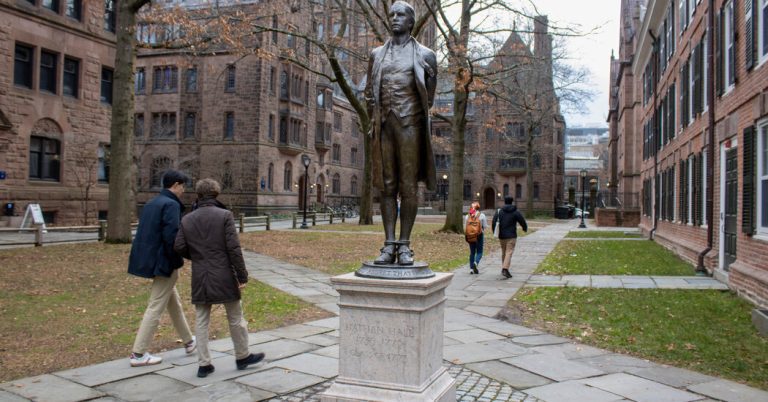But race remained a highly charged topic at Yale, which had an often contentious relationship with the local Black community. And the university’s record has been thrust into the national spotlight by the debate over the renaming of Calhoun College, an undergraduate residential facility named after John C. Calhoun, the antebellum South Carolina senator and architect of southern secession. (In 2017, it was renamed in honor of Grace Murray Hopper, a pioneering computer scientist turned rear admiral in the United States Navy.)
But Blight, a leading Civil War scholar and author of a Pulitzer Prize-winning biography of Frederick Douglass, said he was “surprised” when Salovey called him in September 2020 asking him to take on the project.
“This did not come from any yearning in the faculty,” he said. “It came from the president himself.”
Blight said he had agreed as long as he and the team he assembled could write a “real narrative story” rather than just an exposé. He said neither he nor any of the other contributing faculty members at Yale were paid. “We wanted to avoid the appearance of cashing in on Yale’s history,” he said.
They were given free reign in their research and the university made no effort to vet what they wrote, he said.
The book, whose main findings are also presented on a website, begins with the early history of Connecticut, where in the 18th century about 50 percent of the economy was tied to trade with the West Indies, which depended on slavery.
One of the most fascinating parts, Blight said, was the pre-war period, when Yale students and faculty were on both sides of the slavery issue and the university — which in the 20th century tended to emphasize abolitionist history – pursued a policy of “aggressive moderation”, as Blight calls it. “They just didn’t want to take the place until the 1850s,” he said.




